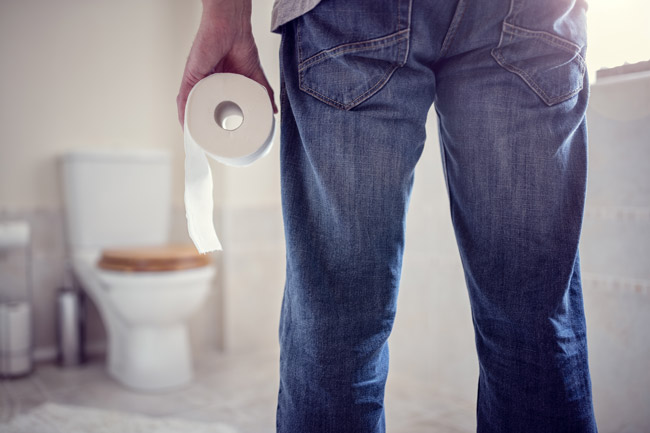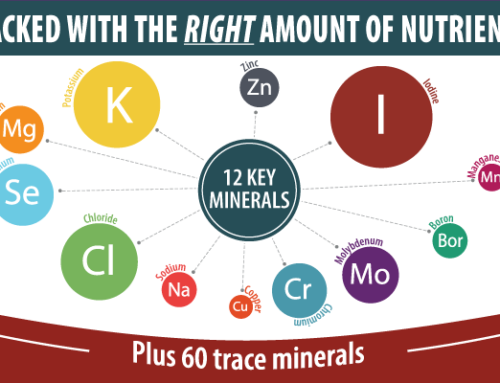By Karie N. Anderson
It’s a subject not often spoken about openly in mixed company, but there is confusion about what is considered “normal” regarding the frequency of bowel movements. While some experts state that two to three bowel movements a day is “normal” and recommended, not having a bowel movement each day doesn’t necessarily mean, and should not be assumed as such, that something is wrong. Either way, knowing your options for natural constipation relief is essential if you want to stay regular.
Some people have a more “sluggish” system. In particular, women are often disproportionately affected by constipation (estrogen and progesterone appear to influence GI and colonic motility) often aggravated during the luteal phase of their menstrual cycle, pregnancy, and during peri- and post-menopause. Other people, however, may suffer from certain conditions such as IBS (Irritable Bowel Syndrome) with constipation dominating the condition.
Do You Have Chronic Constipation?
According to the Mayo Clinic, the following are common signs and symptoms of constipation:
- Have fewer than three bowel movements per week
- Experience hard, dry stools
- Strain excessively during bowel movements
- Experience the feeling of a blockage or the continued urge to defecate
It’s estimated that constipation affects 20 percent of the population. Certain medical and physical conditions or other factors can also contribute to constipation. For instance, older and/or sedentary (including those confined to bed) adults report higher rates of constipation. Other factors, too, include the following:
- Eating a diet low in fiber
- Not drinking enough water and/or fluids
- Undergoing chemotherapy
- Pregnancy
Chronic constipation should be discussed with a physician. Further, any changes in bowel movements, abdominal and/or rectal pain, should also be discussed with a physician.
Don’t Use a Laxative for Chronic Constipation – Try Natural Constipation Relief First
If you are suffering from chronic constipation, it may be tempting to reach for a laxative that can—no pun intended—produce quick results. But that’s really all that can be said about laxatives. (Interesting related article: Don’t bomb the bowels with laxatives- Harvard Health)
Laxatives, though, are big business. According to one pharmaceutical company, there are more than 700 varieties of over-the-counter and prescription laxatives available with annual sales totaling over $1 billion.
A more prudent solution to solving chronic constipation and avoiding laxative abuse (and the risks that accompany it such as electrolyte imbalance) is to consume a fiber-rich diet. Within the GI tract, fiber, for lack of a better word, “soaks up” toxins, fat, and scours the intestines of accumulated debris that may have become impacted within the large intestine. Laxatives don’t do that. A natural constipation relief will give you the benefits without the potential risks of laxatives.
Interesting related article: Laxative Side Effects – Understanding the Risks
Fiber, an effective natural constipation relief, not only promotes regularity, but it also has numerous other positive effects on your health. It reduces the risk of colon diverticulosis, carcinoma of the bowel and stomach, type-2 diabetes, metabolic syndrome, and cardiovascular disease.
Tips for Promoting Regularity:
Simple dietary and lifestyle changes can support and improve elimination. Below are some tips and suggestions:
- Consume a high-fiber diet. Women need 25 grams of fiber daily; men need 38 grams daily. However data indicates that the majority of people consume only half the recommended levels. Aim to include high-fiber foods in the diet such as beans, whole grains, fresh vegetables, and fruit, which will help form bulky, soft stools. In addition to the added fiber, whole foods provide additional minerals, vitamins, enzymes, and other nutrients. Quality, all-natural fiber supplements can also help. Consider our health products if you’re looking for natural support by clicking here.
- Sedentary lifestyles contribute to constipation and increase the risk of heart attack and stroke. Even mild forms of exercise such as walking, yoga, tai chi, and swimming help stimulate intestinal activity while cleansing the body of other elimination systems. Perspiration, for example, helps cleanse the skin’s pores.
- Drink plenty of fluids. Drink plenty of water–not colas, coffees, juices, etc.– just water. It will help soften the stool and assist the kidneys and skin. Adding some ionic minerals and electrolytes to your drinking water and beverages will help replace electrolytes that maintain fluid and pH balance, and also help your intestinal system to pull in the water it needs to eliminate waste and reduce constipation. You can order our high-quality electrolyte replacements here.
Related article: Electrolyte Drops in Water – Clinical study showed improved hydration
- Replace “Friendly Bacteria” in the Gut. Many of us have heard the term “probiotics” and “prebiotics,” but don’t have the slightest clue what these terms are. These are microorganisms that live in our intestines and can exert a positive effect–one of them being that they can support regularity. They can also help protect against or reduce the nasty effects of diarrhea, food poisoning, rotovirus, etc. Pre- and pro-biotics are found in yogurt and some yogurt drinks. You don’t have to look far in your grocer’s dairy case to find these beverages and other food products fortified with these ingredients. They are even available in our natural fiber supplements.
- Alternative Medicine. In many cases, additional therapies such as massage or acupuncture can also assist cleansing and stress reduction while stimulating colonic activity.
It may take some time to learn what options work best for you personally, but finding natural constipation relief is possible and worth it for your healt.






